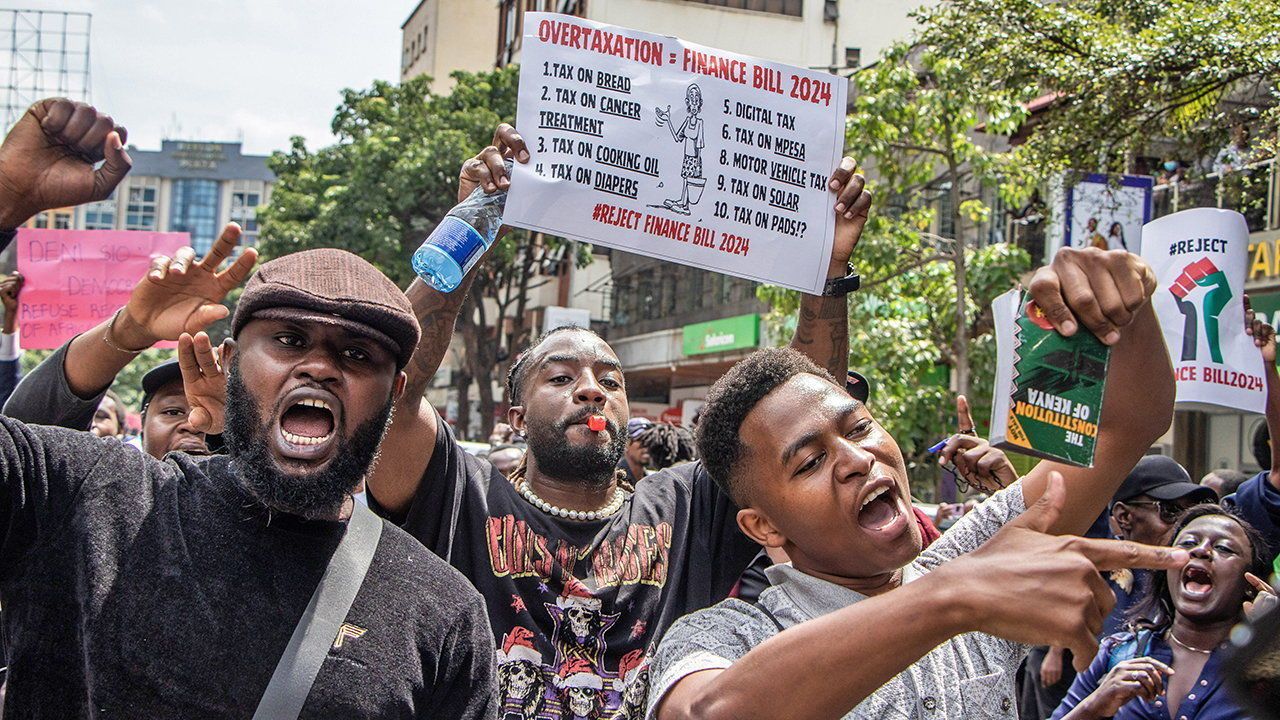The IMF has a protest problem
Does it give up—or insist on painful reforms?

It has been a tumultuous few months for the International Monetary Fund’s borrowers. In June protests brought thousands onto the streets in Kenya after William Ruto, the president, laid out the spending cuts required to convince the IMF to disburse the latest instalment of the country’s $3bn bail-out. Two months later, Sheikh Hasina, prime minister of Bangladesh, which also has a programme with the fund, was ousted when reforms to the country’s bureaucracy sparked riots.
Explore more
This article appeared in the Finance & economics section of the print edition under the headline “Long, hot summer”
Finance & economics
September 14th 2024- Can anything spark Europe’s economy back to life?
- Norway’s weak currency presents a mystery
- Strangely, America’s companies will soon face higher interest rates
- Can bonds keep beating stocks?
- China’s government is surprisingly redistributive
- The IMF has a protest problem
- Why orange juice has never been more expensive
- An American sovereign-wealth fund is a risky idea

From the September 14th 2024 edition
Discover stories from this section and more in the list of contents
Explore the edition
Trump’s tariff turbulence is worse than anyone imagined
Even his concessions are less generous than expected

Why silver is the new gold
Safe-haven demand and solar panels have sent its price soaring

Trump’s new tariffs are his most extreme ever
America targets its three biggest trading partners: Canada, Mexico and China
El Salvador’s wild crypto experiment ends in failure
Its curtailment is the price of an IMF bail-out. And one worth paying
America is at risk of a Trumpian economic slowdown
Protectionist threats and erratic policies are combining to hurt growth
India has undermined a popular myth about development
Extreme poverty in the country has dropped to negligible levels








